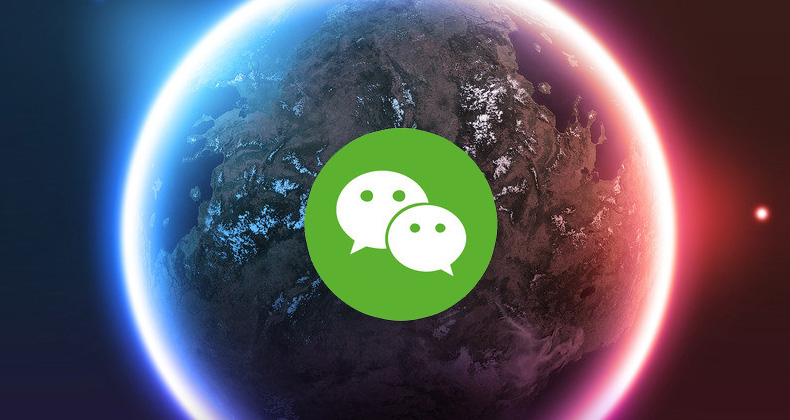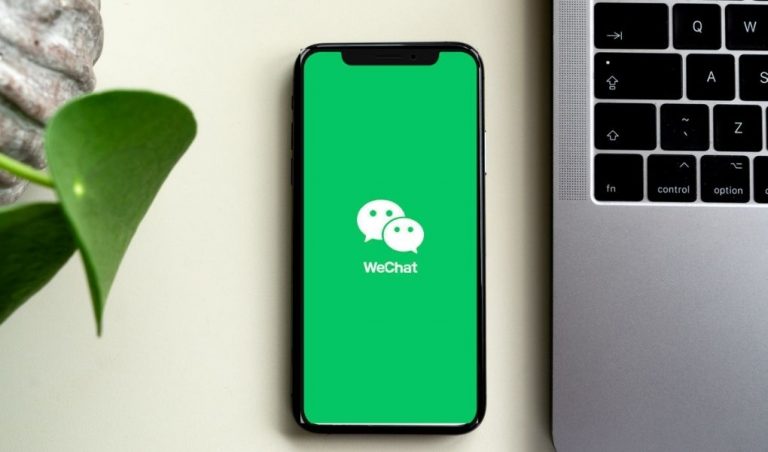China is without a doubt one of the most connected countries in the world. Since the economic development of the country, the inhabitants got wealthier and most of the population now owns a smartphone. In a country with more than 1.4 billion people, this automatically represents a huge market. One of their favorite app is called “WeChat“. Not really famous in the West, it is though used by more than 900 million users every day! It is also the most used messaging app in China. However, WeChat is more than just an app. Developed by Tencent, WeChat has many features: it can send texts or vocal messages, take photos and videos, send locations to friends, pay for shopping or rent, make an appointment to the doctor and many others. WeChat brings together all of the most useful features in Chinese’s life in one single app. But since January 2017, a new system has been integrated into WeChat: mini-programs.
While we could have think that WeChat already had everything that the Chinese needed in one app, Tencent hit hard with the arrival of the mini-programs. One year after its launch, there are already more than 580,000. In order to compare, the App Store has launched 500,000 new app between 2008 and 2012. The rhythm in which mini-programs have developed is thus spectacular! Today, they have nearly 170 million users every day. But, what exactly are WeChat’s miniprograms?
Mini-programs: The WeChat revolution is coming
This new feature can be described as a kind of “sub-application”. That is, one app inside another (in this case, WeChat). Mini-programs can therefore be compared to “mini-apps” built into the WeChat app itself. As a result, users will no longer have to use or download new apps because they may already be in WeChat!
The mini-programs concern all types of services: sales, e-commerce and government services. Here is an example of use of mini-programs with the suggestions that are proposed to me after the app geolocated myself:


Following this example, it would therefore be possible for me to deliver food to my home directly through this mini-app. The
official app of this fast food chain would be useless, because
WeChat was able to bring them both together. These mini-
programs are therefore big competitors to classic stores.
Moreover, it is a competitor almost unbeatable because no
Chinese can survive without WeChat.
However, this system is not new. Some of WeChat’s biggest competitors already tried this strategy. We saw the “IMessage” system launched by Apple (a texting service between Iphones), Facebook and its “Marketplace” (a platform to sell and buy objects around your location), Messenger and its “Instant Games” (a mini arcade in your phone). They have all been more or less successful. Although the strategy has already been used, none of the competitors has been as successful as WeChat with its mini-programs.
Chinese spend an average of more than 3 hours a day on WeChat. Its success lies in the diversity of its features. Considering the importance of the application in the daily life of the Chinese, it also proves to be a great asset for companies wishing to have a digital presence.
How are mini-programs interesting from a marketing point of view?
Considering that 94% of Chinese use WeChat every day, there is thus no better app in China to give visibility to your brand. However, in addition to an official account, you can now create your mini-program. There are several advantages to this.
First, mobile apps take up a lot of space in the device’s storage. It may happen that some Chinese won’t want to download your app, because it would allow them to store fewer photos for example. Especially if they are not regular customers. Mini-apps are taking less space, are more convenient, but are also faster. Your customers are therefore likely to prefer this mini-program to your original app.

In addition, the cost of creating a mini-program requires less time and money investment than those required for a regular app. This option is therefore accessible to everyone, from small start-ups to multinational firms.
Finally, it was previously impossible to insert hyperlinks in the content of your “moments” (a feature of WeChat, equivalent to Facebook’s “wall”). These hyperlinks could for example have allowed the Key Opinion Leaders of the country to send their “followers” on their e-commerce website through WeChat. But it is now possible thanks to the mini-programs! They allow businesses and entrepreneurs to promote their brand, as well as they allow customers to buy their products or services without even having to change app.
Do you also want to develop your brand in China? You don’t know how to enter this difficult market and need help?
Get in touch with a specialized agency: Gentlemen Marketing Agency!
We are the first digital marketing agency in China. If you need more information, please visit our website and contact our digital marketing specialists.








the White House has once again taken up its old “break” refrain, claiming that the United States “is not obligated to trade with China.” This little music, not pleasing to the ear, American politicians have been singing about for a while. In the midst of the election campaign for the presidential election next November, these politicians, despite their best efforts so far, have delivered only a mediocre political show.
That American companies stop doing business with China? This venomous proposal put forward by politicians did not win the approval of American companies, who rejected it outright.
President Trump’s decree banning, as of September 20, American individuals and corporations from any transaction with the Chinese Internet giant Tecent, owner of the very famous social network Wechat.
As was to be expected, this ultimatum from the US president met with strong opposition from major US companies including Apple, Ford, Goldman Sachs, Walmart and P&G. During their conference call with the White House, the heads of a dozen US-based transnationals warned of the decline in the competitiveness of American companies in the market for the world’s second largest economy in the event of the threat of Wechat ban would go into effect.
With over a billion users worldwide, Wechat is a mega app covering all day to day operations, from marketing to payment, communication and e-commerce. An essential tool for doing business in China.
Admittedly, this ban is a blow for the Chinese giant, but it is American companies who will feel the big shock, commented Financial Times. Take the examples of Walmart and Starbuck who use the Wechat mini-program extensively to serve local customers: orders and purchases made through this platform last year represented $ 115 billion in revenue. What trader would be willing to leave a market like this?
Politicians appear to be caving in to pressure from the business community. Bloomberg News reveals that a few weeks after the ban was announced, government officials spoke privately with business leaders, including Apple’s, to let them know they would still be allowed to use Wechat in China. The mediocre “break-up” comedy risks giving birth to nothing but an illusion.
American companies need the Chinese market, this is simply beyond dispute. The American Chamber of Commerce in China says it received requests from nearly 200 people within 3 days, after announcing a September 12 date for the charter flight from Los Angles to Beijing, the first among two countries since the start of the health crisis. These American businessmen and women, who are eager to return to China, are unwilling to support the ban on trade with China.
The two largest economies in the world are interdependent. Henry Farell, professor at George Washington University compares the two economies to Siamese sisters who share organs and the same blood system. Brutally separating them can only hurt the two and the rest of the world will suffer the impact of such daring surgery.
According to Deutsche Bank estimates, if we don’t manage litigation and let it lead to a “technological break” between China and the United States, technology companies around the world could lose in the next 5 years. to $ 3.5 trillion, double the economic volume of Canada in 2019. And this possible loss would fall mainly on American companies, specifies the German bank.
Chinese and Americans have benefited equally from their economic, commercial, human, cultural and technological cooperation. Neither country has lost, neither has abused the other. A latest study by the Peterson Institute for International Economics in the United States shows an increase in American interest in China in recent years. The volume of Chinese securities and debts held by foreigners, including Americans, has grown steadily.
Moody’s has just raised its forecast for the Chinese economy from 1% to 1.9%. The agency also predicts 7% growth for China in 2021. The health of the world’s second-largest economy has undoubtedly bolstered the confidence of businesses around the world.
As for the politicians who spend their time playing political circus, it is high time for them to come to their senses and pay attention to what is being said in the American business community.